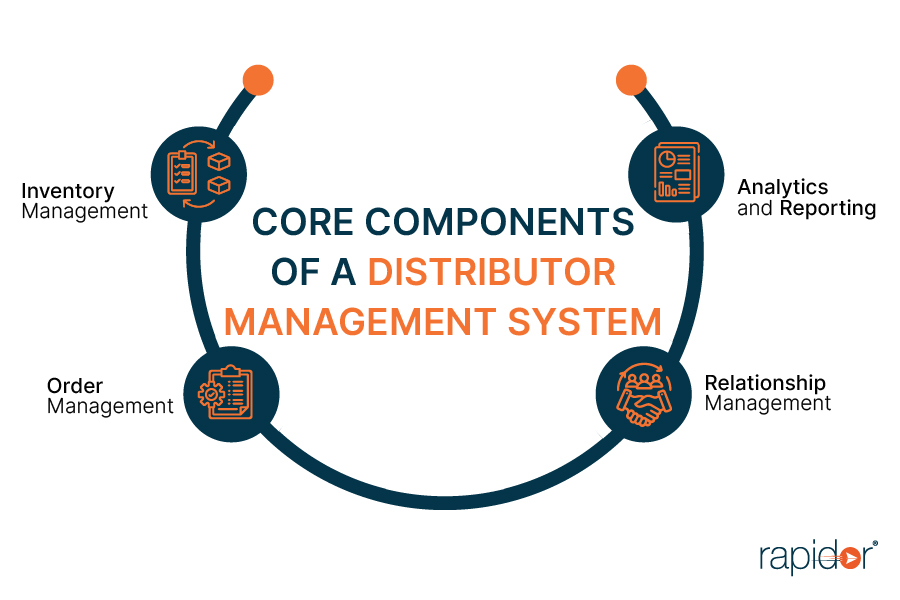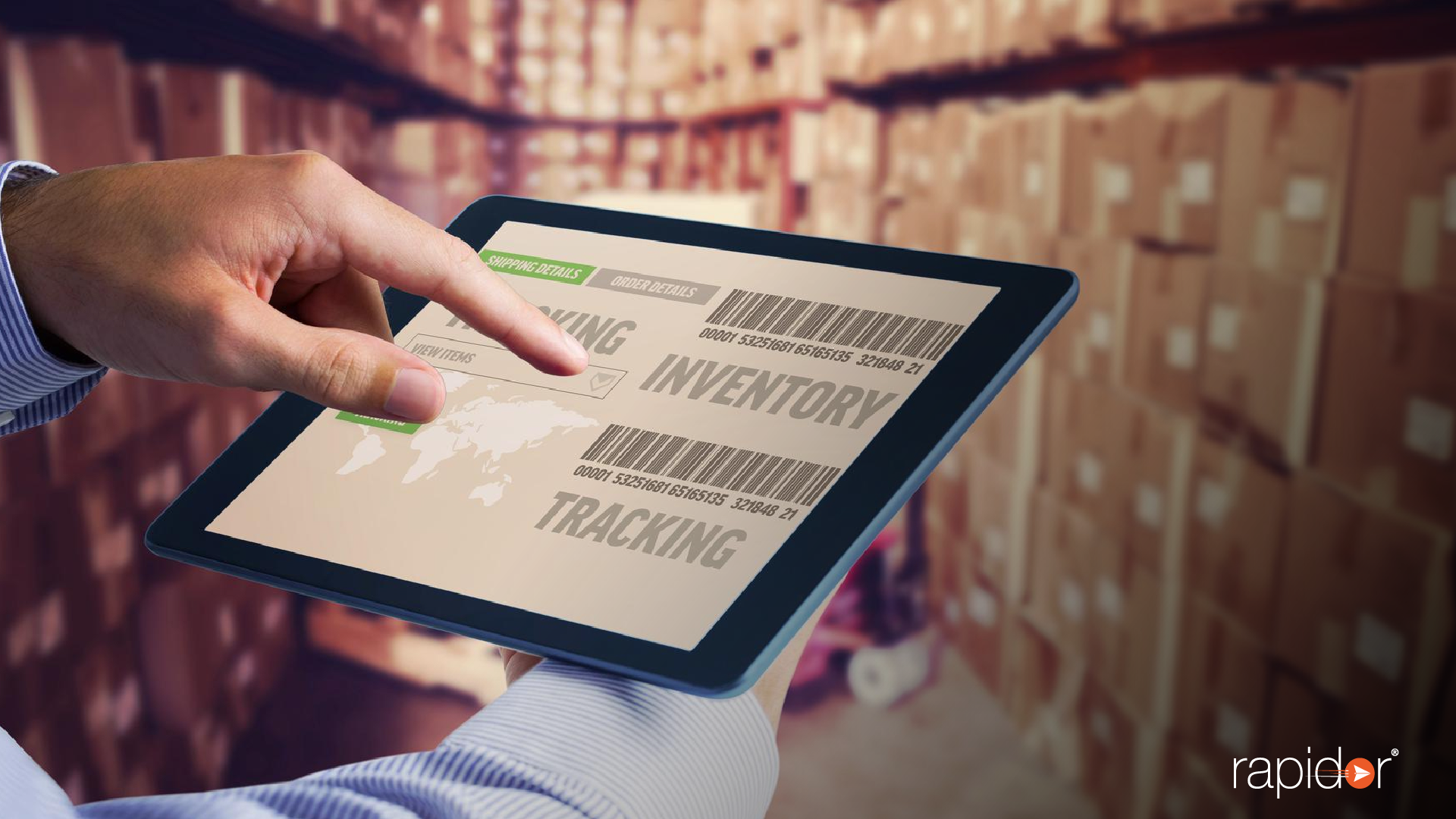The Fast-Moving Consumer Goods (FMCG) sector is a dynamic and rapidly evolving industry driven by consumer demands and market trends. In this competitive landscape, efficient and streamlined distribution plays a pivotal role in the success of FMCG companies. This article explores the significance of Distributor Management Systems (DMS) as a game-changer for FMCG enterprises.
Distributor Management Systems (DMS) is a comprehensive software solution designed to optimize and automate distribution processes, from inventory management to order processing and analytics. In this article, we delve into the key components and functionalities of DMS and highlight its instrumental role in driving operational excellence and improving relationships with distributors and retailers. Join us on this journey as we uncover how DMS revolutionizes the FMCG sector and empowers businesses to stay ahead in the competitive market landscape.
The FMCG Landscape: A Quick Glance
Defining FMCG
Fast-Moving Consumer Goods (FMCG) encompass a wide range of perishable and non-perishable products that are in high demand and have a quick turnover rate. These products are consumed by individuals on a daily or regular basis and include items such as food and beverages, personal care products, household essentials, and more. The FMCG sector holds immense significance in the global economy, serving as an essential part of people’s everyday lives.
In the FMCG industry, distribution plays a critical role in ensuring that products reach the right customers at the right time. Efficient distribution networks are vital for meeting consumer demands and maintaining product availability across diverse markets.
Challenges in FMCG Distribution
The distribution process in the FMCG sector is not without its challenges. Several factors present unique hurdles that companies must overcome to ensure seamless operations and customer satisfaction.
Rapid Inventory Turnover
FMCG products have a short shelf life, necessitating rapid inventory turnover to avoid product wastage and obsolescence. Effective inventory management becomes crucial to strike a balance between stock availability and avoiding excess inventory.
High Volume but Low-Profit Margins
While FMCG products witness high sales volume, the profit margins can be relatively low due to competitive pricing and market dynamics. Maintaining efficiency throughout the supply chain is vital to manage costs and maximize profitability.
Ensuring Product Freshness
For perishable goods like fresh produce or dairy products, maintaining product freshness during the distribution process is paramount. Timely and efficient distribution ensures that consumers receive products with optimal quality and shelf life.
Navigating these challenges requires a well-orchestrated distribution system, and that’s where Distributor Management Systems (DMS) step in as a transformative solution. DMS empowers FMCG companies with real-time visibility, automation, and data-driven insights to enhance the distribution process and address these challenges effectively.
Introduction to Distributor Management Systems (DMS)
What is Distributor Management Systems?
Distributor Management Systems (DMS) is an advanced software solution designed to streamline and optimize the end-to-end distribution process in the FMCG sector. It serves as a centralized platform that integrates and automates various distribution functions, providing real-time visibility, data-driven insights, and enhanced control over distribution operations.
Basic Functionalities of Distributor Management Systems:
Inventory Management
DMS enables real-time tracking of inventory levels, allowing distributors to maintain optimal stock levels and avoid stockouts or overstock situations. It facilitates efficient order fulfillment by automating stock replenishment based on demand forecasts and sales data.
Order Management
DMS simplifies the order processing system by automating order placement, order tracking, and invoicing. It ensures faster order processing and reduces the likelihood of errors, leading to improved customer satisfaction.
Analytics and Reporting
DMS provides comprehensive data analytics and reporting features, enabling distributors to gain valuable insights into sales performance, inventory turnover, customer behavior, and market trends. Data-driven decision-making enhances operational efficiency and strategic planning.
Sales Force Management
DMS enables efficient management of the sales force by providing tools for route planning, customer visit scheduling, and performance tracking. It ensures that sales representatives are equipped with the necessary information to enhance customer engagement and maximize sales opportunities.
Evolution of Distributor Management Systems
Over the years, DMS has evolved significantly, transforming from traditional, manual systems to modern, technology-driven solutions.
Traditional DMS Solutions
In the past, distribution management system relied heavily on manual record-keeping and paperwork. Distributors managed orders, inventory, and sales using manual processes, leading to delays, errors, and limited visibility into operations. This approach lacked the agility and efficiency required to keep up with the fast-paced FMCG industry.
Modern DMS Solutions
Today’s DMS solutions are characterized by advanced technology, automation, and integration capabilities. Cloud-based platforms and mobile applications enable real-time access to data and streamlined communication between stakeholders. AI-powered analytics and machine learning enable demand forecasting and predictive analysis, optimizing inventory levels and distribution efficiency.
Modern DMS solutions have become indispensable tools for FMCG enterprises seeking to stay competitive in a dynamic market. They empower distributors with actionable insights, foster better collaboration between manufacturers and distributors, and ultimately contribute to enhanced customer satisfaction and business success. As the FMCG landscape continues to evolve, DMS will continue to play a pivotal role in driving growth and operational excellence in the industry.

Core Components of an Effective Distributor Management System
Inventory Management
Inventory management is a critical component of an effective Distributor Management System (DMS) that ensures optimal stock levels and efficient order fulfillment. The following features are key to effective inventory management:
Real-time Stock Updates: DMS provides distributors with real-time visibility into their inventory levels, allowing them to track stock movement, monitor product availability, and avoid stockouts. With real-time data, distributors can make timely decisions to replenish stock and optimize inventory levels.
Predictive Analysis for Stock Refilling: Advanced DMS solutions leverage predictive analytics to forecast demand and optimize stock refilling. By analyzing historical sales data, market trends, and seasonal variations, the system can proactively recommend when and how much stock to reorder, reducing the risk of excess inventory or stock shortages.
Order Management
Efficient order management is essential to streamline the order-to-cash process and improve customer satisfaction. A robust order management system within the DMS includes the following capabilities:
Seamless Order Placements: DMS allows distributors to place orders seamlessly through digital platforms, reducing manual errors and processing time. It enables customers to place orders through web portals or mobile applications, ensuring convenience and ease of use.
Automated Order Processing: Automation of order processing eliminates manual intervention and accelerates order fulfilment. Once orders are received, the DMS automatically generates invoices, confirms order details, and updates inventory levels, leading to faster order processing and reduced lead times.
Analytics and Reporting
Data-driven decision-making is vital for FMCG distributors to stay competitive and adapt to changing market dynamics. DMS equipped with robust analytics and reporting functionalities provides the following benefits:
Sales Performance Metrics: DMS provides distributors with real-time sales performance metrics, such as revenue, sales volume, and customer segmentation. Analyzing sales data helps identify top-performing products, regions, and sales representatives, enabling focused sales strategies.
Inventory Forecasting: DMS utilizes historical sales data and demand patterns to forecast future inventory requirements. By accurately predicting demand, distributors can maintain the right stock levels, minimize carrying costs, and avoid stockouts.
Relationship Management
Effective relationship management is crucial for building strong partnerships between manufacturers and distributors and ensuring smooth collaboration throughout the distribution network. Key features of relationship management in DMS include:
Engaging with Distributors: DMS facilitates seamless communication and collaboration between manufacturers and distributors. Distributors can access product information, promotions, and marketing materials, fostering a stronger relationship and alignment with the manufacturer’s goals.
Problem Resolution and Feedback Mechanisms: DMS includes features for logging and tracking customer complaints and feedback. Distributors can promptly address customer issues and provide feedback to manufacturers on product quality or market demand. This enables continuous improvement and enhances customer satisfaction.
An effective DMS with robust inventory management, order management, analytics, and relationship management capabilities empowers FMCG distributors to streamline operations, reduce costs, improve customer service, and respond quickly to market demands. By adopting advanced DMS solutions, FMCG enterprises can stay ahead in the fast-paced and competitive industry, ensuring sustained growth and success.
Distributor Management System : The Unseen Hero in FMCG’s Success
In the fast-moving consumer goods (FMCG) sector, efficient distribution plays a pivotal role in determining the success of brands and products. A well-implemented Distributor Management System (DMS) acts as the unseen hero, transforming the distribution landscape and contributing to FMCG’s growth and profitability. Here are some ways in which DMS influences FMCG’s success:
Efficient Distribution
A streamlined DMS empowers FMCG enterprises with faster time-to-market, enabling them to respond quickly to market demands and changing consumer preferences. By automating order processing, inventory management, and route optimization, DMS facilitates swift order fulfilment and delivery. This not only ensures that products reach retailers and consumers on time but also allows companies to capitalize on new market opportunities and seasonal trends.
Improved Retailer Relationships
DMS strengthens the relationship between FMCG manufacturers and retailers, promoting transparency and trust in business operations. With real-time access to sales data, product availability, and promotional materials, retailers can make informed decisions and plan their inventory effectively. Additionally, prompt grievance redressals through the DMS improve customer service, enhancing the overall retailer experience and fostering long-term partnerships.
Reduced Operational Costs
FMCG enterprises often face challenges related to wastage and returns, which can significantly impact their bottom line. A well-implemented DMS helps in minimizing wastage and optimizing inventory levels by providing real-time insights into sales performance and demand forecasting. By aligning production and distribution with actual market demand, DMS reduces overstocking and stockouts, leading to cost savings and increased operational efficiency.
Moreover, DMS enables efficient route planning and optimization, reducing transportation costs and ensuring timely deliveries. Automation of order processing and inventory management eliminates manual errors and reduces administrative overheads. By streamlining operations, FMCG companies can achieve cost-effectiveness and gain a competitive edge in the market.
Future Trends: How is DMS Evolving for FMCG?
The FMCG industry is constantly evolving, and so is the role of Distributor Management Systems (DMS) within it. As technology advances, DMS is embracing new trends and innovations to stay relevant and effective in the dynamic FMCG landscape. Here are some key future trends that showcase how DMS is evolving for FMCG:
Integration with AI and Big Data
One of the most significant trends reshaping the DMS landscape is the integration of Artificial Intelligence (AI) and Big Data analytics. By leveraging AI algorithms and analyzing vast amounts of data, DMS can offer predictive analysis and demand forecasting capabilities. AI-powered DMS can anticipate consumer preferences, market trends, and supply chain dynamics, enabling FMCG enterprises to proactively align their production and distribution strategies with changing demands. This leads to optimized inventory management, reduced stockouts, and improved customer satisfaction.
Mobile-first DMS solutions
As the workforce becomes increasingly mobile, DMS is shifting towards mobile-first solutions. Mobile DMS applications offer on-the-go access for distributors, sales representatives, and field staff, empowering them with real-time information and functionalities. Mobile DMS enables distributors to place orders, update inventory status, and access sales data from anywhere, streamlining the entire supply chain process. With mobile-first DMS solutions, FMCG enterprises can enhance collaboration, improve operational efficiency, and deliver a seamless customer experience.
Enhanced Security Features
With the growing significance of data in the FMCG sector, data privacy and security are paramount. Modern DMS solutions are prioritizing enhanced security features to safeguard sensitive information and ensure secure transactions. Robust encryption, multi-factor authentication, and role-based access controls are some of the security measures being incorporated into DMS platforms. By implementing these security features, FMCG companies can build trust with their distributors, retailers, and consumers, and protect their valuable data from potential cyber threats.
Implementing DMS: Best Practices for FMCG Enterprises
Implementing a Distributor Management System (DMS) requires careful planning and execution to ensure its successful integration and adoption within FMCG enterprises. Here are some best practices that FMCG companies should follow when implementing a DMS:
Customization is Key
No two FMCG enterprises are the same, and each may have unique requirements and workflows. It is crucial to choose a DMS that can be customized to align with specific business needs. Customization allows FMCG companies to tailor the DMS functionalities, user interfaces, and reporting capabilities to match their distinct processes. By adopting a customized DMS, enterprises can optimize workflows, improve productivity, and deliver a seamless user experience to all stakeholders involved.
Continuous Training
A successful DMS implementation depends on ensuring that all stakeholders, including distributors, sales representatives, and support staff, fully understand and utilize the tool effectively. FMCG enterprises should invest in comprehensive training programs to familiarize users with the DMS functionalities and best practices. Continuous training sessions, workshops, and online resources can keep users up-to-date with any system upgrades or feature additions. Well-trained users are more likely to embrace the DMS, maximize its potential, and contribute to its successful implementation.
Conclusion
In conclusion, the Distributor Management System (DMS) plays a pivotal role in driving operational success for FMCG companies. With its capabilities in streamlining distribution, improving retailer relationships, and reducing operational costs, the DMS acts as an unseen hero behind the scenes. As the FMCG sector faces growing competition and evolving consumer demands, embracing DMS technology becomes imperative for sustained growth and efficiency. FMCG businesses must recognize the inextricable bond between DMS and their success, and proactively adopt this transformative tool to stay ahead in the dynamic market landscape. Innovation and integration of DMS will pave the way for continued growth and success in the industry.
FAQ
1. How does a Distributor Management System (DMS) impact the success of FMCG companies?
DMS plays a crucial role in FMCG success by optimizing distribution processes. It ensures faster time-to-market, streamlined order placements, and efficient inventory management, leading to improved product availability and reduced operational costs.
2. Can DMS help FMCG companies adapt to changing market demands?
Absolutely! DMS provides real-time data analytics and inventory forecasting, enabling FMCG companies to make informed decisions and quickly adapt to market fluctuations and consumer preferences.
3. What are the key benefits of integrating AI and Big Data into DMS for FMCG?
By integrating AI and Big Data, DMS can perform predictive analysis and demand forecasting, helping FMCG companies optimize their production and distribution strategies. This leads to reduced inventory wastage and better resource allocation.
4. How can DMS enhance security in FMCG operations?
DMS incorporates enhanced security features to protect sensitive data and ensure secure transactions between FMCG companies and their distributors. It helps build trust and confidence in the distribution network.
5. What best practices should FMCG enterprises follow when implementing DMS?
FMCG enterprises should focus on customization to align the DMS with their specific business needs. Additionally, continuous training for all stakeholders ensures smooth adoption and utilization of the DMS’s capabilities, maximizing its benefits for the company’s success.


